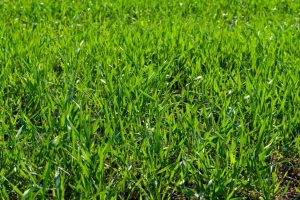Numerous microorganisms play a significant role in assuring and sustaining the soil’s health. To preserve soil and plant health, organic farming advocates utilizing compost rather than synthetic fertilizers.
Organic fertilizers minimize the spread of infection and disease, but pesticides and herbicides impair the biological interactions between soil microbes and crops. Moreover, crop rotation is frequently utilized in organic farming systems to boost crop productivity. It nourishes the soil, aids in water retention, and avoids soil erosion.
Fertile soil is the most essential factor in agricultural productivity and profitability. Farmers can develop soil management practices that aid in the preservation of vital resources such as soil fertility.
The focus should be placed on conserving nutrient cycling and soil biology, optimizing irrigation and air delivery, and controlling pests. These activities also contribute to environmental preservation. All soil processes proceed naturally, and the ecology is not compromised.
Organic Matter
Healthy plants require healthy soil so we must build soil organic matter to promote air circulation and water absorption. The pillars of organic soil management include diverse cover crops, mulch, and prohibitions on tillage. Organic matters also extract nitrogen, phosphorus, and sulfur. In the absence of these substances, crop yields are typically diminished.
Compliance with these guidelines contributes to the preservation and expansion of organic matters. Organic soils contain more organic matter than those cultivated through conventional systems.
Nitrogen Holding and Fixing
When released into the atmosphere, nitrogen and carbon dioxide are powerful greenhouse gases that have a negative impact on the climate. Thankfully, organic farming methods aid in the sequestration of greenhouse gases in the soil. Research conducted by the U.S. Department of Agriculture demonstrates the efficiency of organic crop production and management.
In both zero and lane processing, roughly the same quantity of N2O is lost, but these amounts are far lower compared conventional processing losses. Additionally, the nitrogen that remains in the soil system offers critical crop nutrients. Organic methods in organic fields is extremely beneficial to farmers to avoid soil degradation.
Cover Crops Use
Planting cover crops is an excellent method for preserving and protecting soil health. These crops can avoid erosion of the soil during the winter months when no main crop is available. The microbial biomass produced by a cover crop is returned to the soil, increasing its soil organic matter content.
By generating macropores, cover crop stem roots minimize soil compaction, whereas cover crop fiber roots enhance soil aggregation and stabilization. Growing cover crops can also enhance the number of beneficial fungi, contribute nitrogen to the soil, prevent nutrient loss, and retain nitrates.
Nutrients Management
Reduced nutrient availability for plant growth can reduce crop yield. It is vital to ensure their availability in the soil and ideal levels of organic nutrients in order to achieve a high level of food production. The timely application of micronutrients can improve plant nutrition in the presence of a soil deficiency.
A sustainable soil health management system is based on integrating eco-systemic processes with the needed amount of nutrient uptake. It offers the ability to produce higher yields while requiring fewer external inputs.
Microbe Management
Studies published in Frontiers in Microbiology reveal that organic farm soils are richer in beneficial microorganisms than conventional farm soils. Soil microorganisms inhibit diseases and enhance nutrient absorption. Similar findings on banana plantations were published in the journal Applied Soil Ecology by Taiwanese researchers.
The availability and balance of nutrients in the edible sections of the plant, which depend on their presence in the soil, determine the quality of human nutrition. Therefore, the greater the soil’s microbial diversity, the more nutritious our food is.
In soil microbial communities, several effects of organic and conventional management have been proposed, which may increase, decrease, or preserve the diversity of microbial.
Carbon Capture
Today, we must prioritize the availability of sufficient food and the preservation of the environment. Increasing carbon levels in the atmosphere can disrupt the climate. Carbon-rich organic matter does not affect the environment by remaining in the soil and nourishing plants.
According to an analysis of data from the National Soil Project, organic practices aid in carbon sequestration. In addition, organic soils contain more compounds that impart a rich brown hue to the topsoil.
Pesticide Use Reduction
Not only do pathogens suffer from pesticides, but so do essential soil substances and microorganisms. Farmscaping is a collection of practices that improve biodiversity. This method proposes landscaping with insectary plants in addition to hedges and ponds.
Additionally, a cover crop is essential for attracting and sustaining populations of predatory creatures. Organic farms and organic management can also act as a filter to minimize erosion of the soil and water runoff.
Final Words On Organic And Conventional Farming Systems
Only healthy soils without the use of synthetic chemical fertilizers can offer the appropriate amount of food for the population. Organic cropping systems enable farmers to cultivate crop growth and generate revenues while protecting the soil properties, soil quality, and the environment.
According to research, greenhouse gases on the earth remain in the soil when a cover crop is grown. Thus, they do not contribute to climate change by entering the atmosphere.




